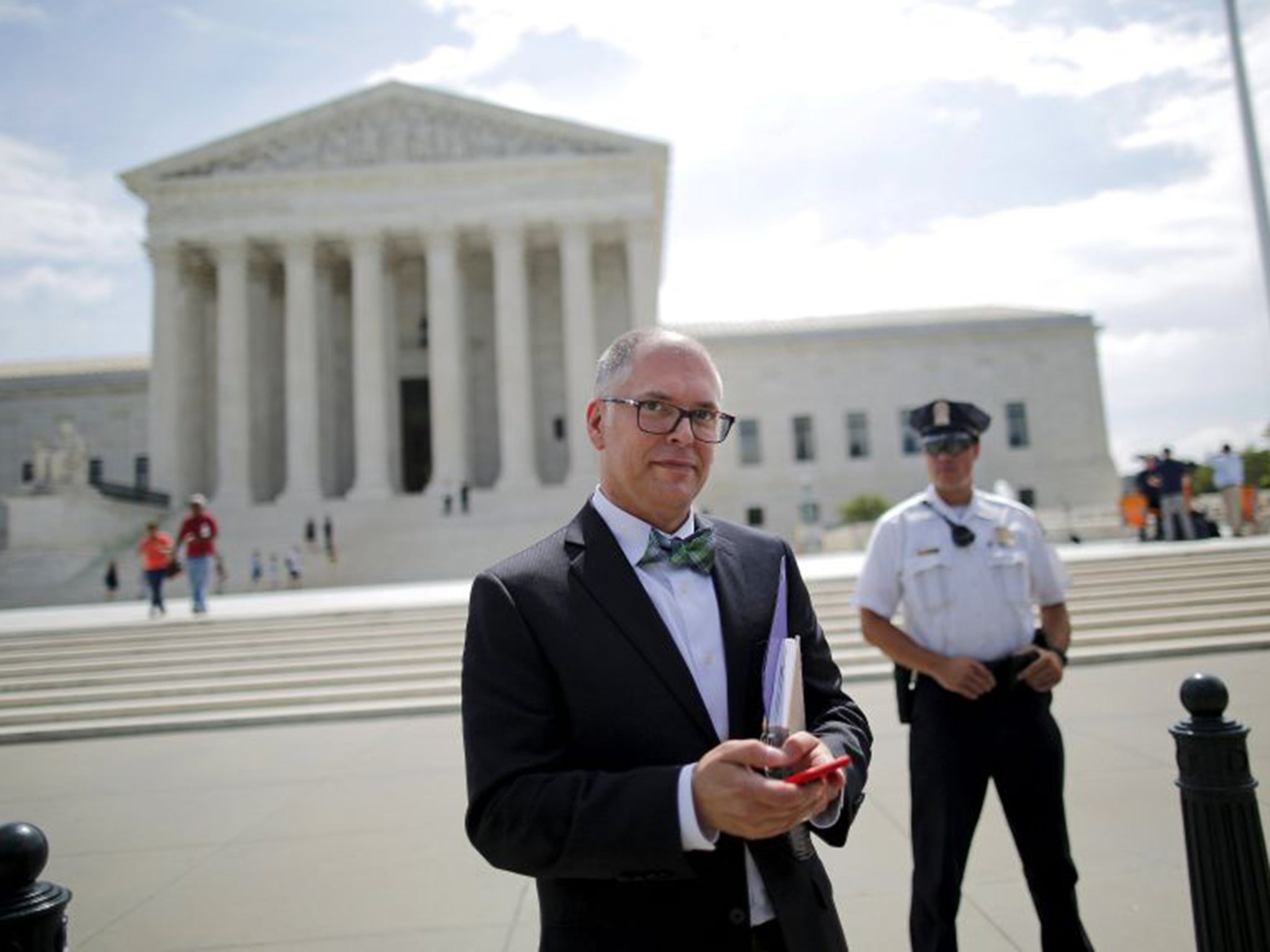Gay marriage: US Supreme Court set for historic decision
Judges to issue long-awaited ruling on legality of same-sex marriage bans in four states

When Jim Obergefell lost his husband, John Arthur, two years ago to the neurological disease amyotrophic lateral sclerosis (ALS), he was already battling the state of Ohio over its refusal to recognise them as a married couple. He can’t have known then that his legal actions would take him all the way to the US Supreme Court this week.
His concern was that he should be identified as the spouse on the death certificate when Mr Arthur passed on. Because same-sex marriage was banned in Ohio, he had flown his very ill partner in a medically-equipped plane to Maryland to marry.
He at first won his fight – but his victory was later overruled by a higher court.
Any day now, the nine justices of America’s top court will issue a long-awaited ruling on his and other similar cases challenging same-sex marriage bans in Ohio, Michigan, Kentucky and Tennessee.
Read more:
If they conclude that the four states must recognise the vows of same sex couples taken legally in other states, the result would be far more profound. It would be the moment that the US Court essentially declares that same-sex couples anywhere in the US are entitled to marry just like everyone else.
Only one other case before the court in the session that concludes at the end of this month is causing equal or even greater agitation. That is the decision on whether murky wording in the original Affordable Care Act, or Obamacare, means the government is erring in offering subsidies to individuals purchasing health insurance from a marketplace created by Washington DC rather than by the state that they live in.
Irish gay marriage vote results: In pictures
Show all 11Opponents of Obamacare, mostly conservatives, are hoping the justices will indeed conclude that the subsidies they offer to middle- and lower-income citizens are being paid illegally. If so, about 6.4 million Americans in 34 states could see those subsidies taken away overnight. The result, federal officials have said, would be to send the whole of Obamacare into a sure death spiral.
The decisions in both cases are expected in the next few days and each morning this week will see huge throngs gathering outside the court close to the US Capitol. If the court’s thinking on Obamacare seems opaque, there is some expectation that they will come down on the side of gay rights – and of Mr Obergefell – and thus effectively make gay marriage the new, constitutionally-protected law of the land.
“It’s nerve-racking, it’s exciting, but it’s also scary,” said Mr Obergefell, who has been queuing each morning very early for the chance to actually get into the court.
That debate on both cases was certain to be furious between the justices, as underscored by one of them, Justice Ruth Bader Ginsburg, in a speech earlier this month. “Sharp divisions, one can confidently predict, will rise in the term’s final weeks,” Ms Ginsburg, who sits at the liberal end of the Court, said.
All eyes are on Justice Anthony Kennedy. While generally considered to be in the conservative camp in the court, Justice Kennedy has over the years established a record of expanding gay rights in America.
Subscribe to Independent Premium to bookmark this article
Want to bookmark your favourite articles and stories to read or reference later? Start your Independent Premium subscription today.

Join our commenting forum
Join thought-provoking conversations, follow other Independent readers and see their replies